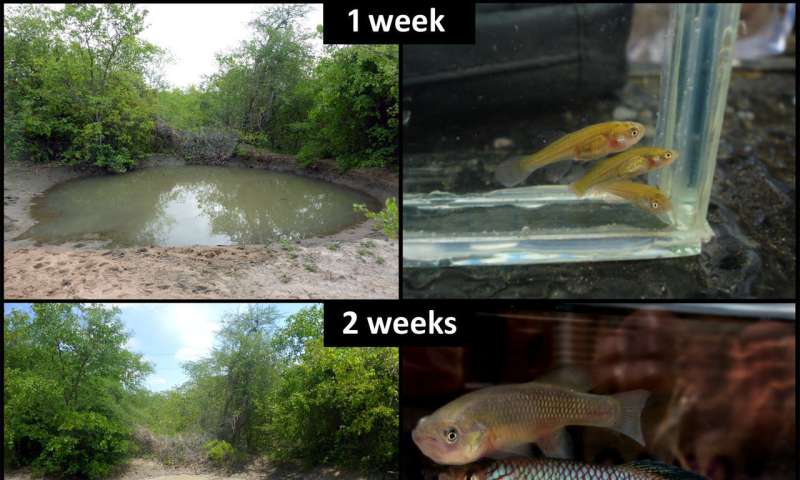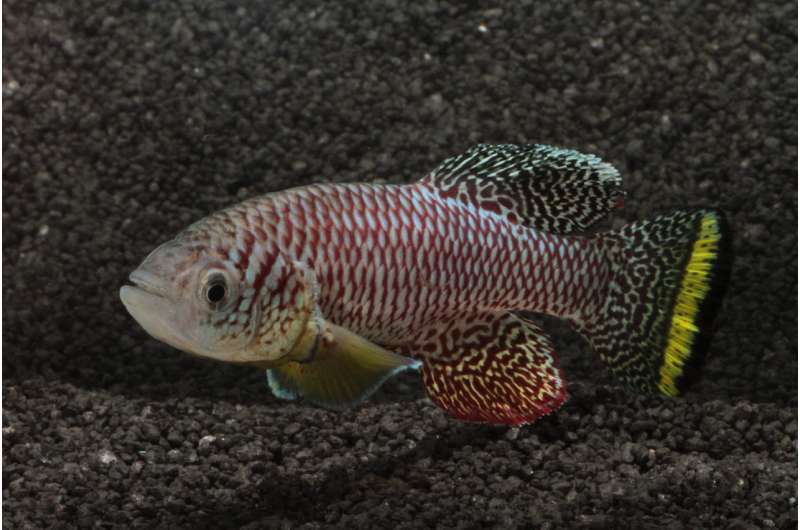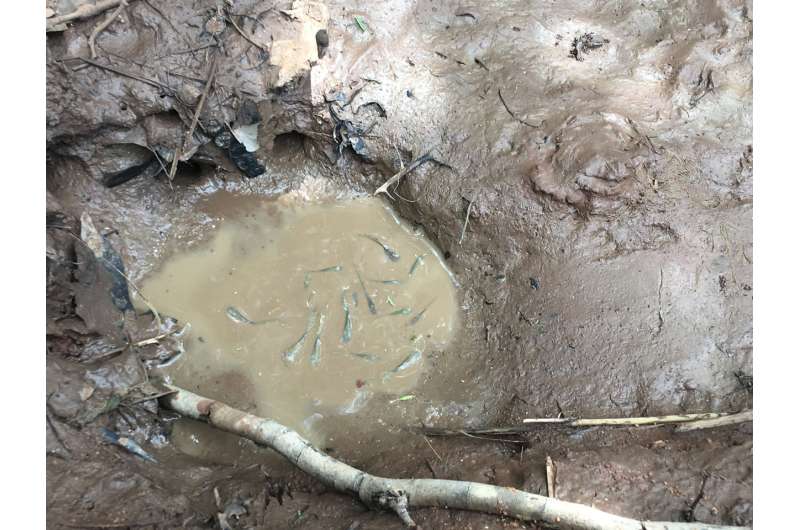African killifish becomes fastest maturing vertebrate on record

Annual killifish are known to live their lives at one of two speeds: "pause" or "fast-forward." For most of the year, the tiny freshwater fish persist as diapausing embryos buried in sediments across the African savannah, much like plant seeds. When rainwater fills small depressions across the landscape, the fish must hatch, grow, mature, and produce the next generation before the pool dries up.
Now, researchers reporting on August 6 in Current Biology have found that these small fish in the wild persist by condensing their life cycle even more than expected based on studies in the lab. The new studies show that, after hatching from a tiny egg just one millimeter in size, the fish grow to their full body size (four or five centimeters) and begin reproducing in just two weeks. The researchers report that this is, to their knowledge, "the fastest rate of sexual maturation recorded for a vertebrate."
"We guessed that some populations of this species could achieve very rapid growth and sexual maturation under particular conditions," says Martin Reichard of the Institute of Vertebrate Biology, The Czech Academy of Sciences. "But we have found that this rapid maturation is the norm rather than a rare exception."
The findings also show that the fishes' lifespan is quite flexible. Reichard says that the typical rate in the lab is three or four weeks under optimal conditions. However, some studies have reported that the fish reach sexual maturity in up to 10 weeks—five times longer than what the researchers have now observed in the wild.

Reichard's lab is primarily interested in the aging process in wild populations. In most vertebrates, aging happens gradually, taking years to achieve. By studying the killifish, they're able to capture the whole process, following several populations over the course of their whole life in a matter of months. In that short time, the fish show all the signs expected with normal aging, including marked functional declines.
Reichard's team made their discoveries by surveying natural populations of the killifish (Nothobranchius furzeri) across its range in southern Mozambique between January and May 2016. They collected the fish from eight separate pools within a period of three weeks after the pools first filled with rainwater. By comparing the timing of the pools' filling and the estimated age of the fish, they determined that the fish hatched within three days of rain. Careful analysis of male and female gonads found that individuals of both sexes were fully mature within 14 or 15 days.

The findings are yet another reminder of how little we know about the diversity of life histories in the wild, Reichard says. His team will continue to analyze the aging patterns in these ephemeral populations. They also hope to explore differences seen within populations, including the reasons why killifish males tend to die sooner than females.
More information: Current Biology, Vrtílek et al.: "Extremely rapid maturation of a wild African annual fish" DOI: 10.1016/j.cub.2018.06.031 , www.cell.com/current-biology/f … 0960-9822(18)30822-4
Journal information: Current Biology
Provided by Cell Press





















